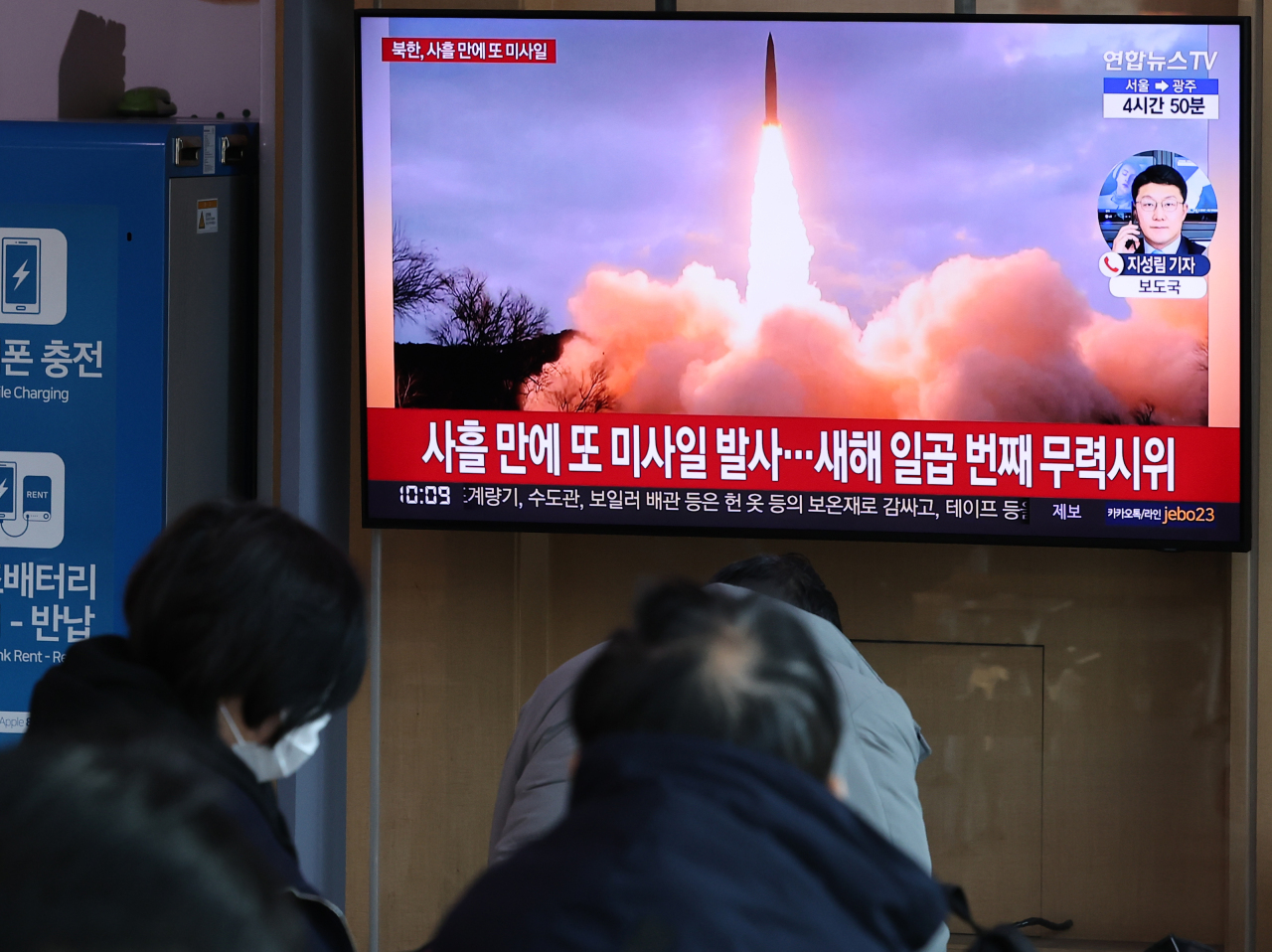Top nuclear envoys of S. Korea, US, Japan to meet in Hawaii for talks on NK
By Ahn Sung-miPublished : Feb. 7, 2022 - 15:16

Top nuclear envoys of South Korea, the US and Japan will hold a trilateral meeting this week in Hawaii to discuss ways to restart the stalled talks and rid the North of its nuclear weapons, amid escalating tension after the regime’s back-to-back missile launches.
South Korea’s Foreign Ministry said on Sunday that Noh Kyu-duk, special representative for Korean Peninsula peace and security affairs, will meet with his American and Japanese counterparts, Sung Kim and Takehiro Funakoshi, respectively, in Honolulu, Hawaii on Thursday.
The ministry said that the three sides are expected to share their assessments of the situation on the Korean Peninsula, and hold in-depth talks on ways for an early resumption of dialogue with Pyongyang.
The State Department also released the statement, saying Kim will travel to Honolulu from Feb.10-15 to host a three-way session “to discuss a broad range of issues, including the complete denuclearization of the Korean Peninsula, the importance of trilateral cooperation and the immediate resolution of the abductions issue.”
The three officials will also accompany their foreign ministers, who are set to hold three-way ministerial meetings on Saturday in Honolulu, the department said.
The series of three-way meetings is seen as part of the efforts by the Biden administration to bolster trilateral cooperation with its key Asian allies to tackle mounting regional issues, including ways to get Pyongyang to halt its nuclear weapons program. Since Biden took office, Washington has initiated series of three-way talks at all levels to deal with the North’s growing nuclear problem. Noh, Kim and Funakoshi last met in person in Washington in October, which coincided with the North’s Oct. 18 test of a submarine-launched ballistic missile.
The US has repeatedly called the North to return to the dialogue, but the recalcitrant regime has rebuffed Washington’s calls. Instead, Pyongyang has been beefing up its arsenals, defying strict sanctions and the UN Security Council resolution which bans the country’s ballistic missile tests.
On Jan. 30, the North fired an intermediate-range ballistic missile, marking its seventh weapons launch this year and what appeared to be the most powerful missile it has tested since 2017. The regime also hinted of ending its self-imposed, four-year moratorium on testing nuclear weapons and long-range ballistic missiles in order to bolster defense against the “hostile policy and military threat by the US.”
All eyes are on whether this week’s consecutive meetings in Hawaii will produce concrete steps to increase diplomatic, economic or military pressure on Pyongyang over its recent provocations.
In response, Daniel Kritenbrink, assistant secretary of state for East Asian and Pacific Affairs, stressed trilateral cooperation to address the “most important security challenges in the region.”
“Certainly, the North Korea issue and countering the threat posed by North Korea’s nuclear and missile programs remains a top priority for the United States, and I am confident the same can be said for our Japanese and South Korean partners,” he said during a telephone press briefing on Friday. “I would just underscore on the subject of the DPRK that our goal remains the complete denuclearization of the Korean Peninsula, and we will continue to consult closely, obviously, with our partners in Tokyo and Seoul and other partners around the region and the globe as well.”
DPRK stands for the North’s official name, the Democratic People’s Republic of Korea.



![[AtoZ into Korean mind] Humor in Korea: Navigating the line between what's funny and not](http://res.heraldm.com/phpwas/restmb_idxmake.php?idx=644&simg=/content/image/2024/04/22/20240422050642_0.jpg&u=)
![[Exclusive] Korean military set to ban iPhones over 'security' concerns](http://res.heraldm.com/phpwas/restmb_idxmake.php?idx=644&simg=/content/image/2024/04/23/20240423050599_0.jpg&u=20240423183955)


![[Graphic News] 77% of young Koreans still financially dependent](http://res.heraldm.com/phpwas/restmb_idxmake.php?idx=644&simg=/content/image/2024/04/22/20240422050762_0.gif&u=)

![[Herald Interview] Why Toss invited hackers to penetrate its system](http://res.heraldm.com/phpwas/restmb_idxmake.php?idx=644&simg=/content/image/2024/04/22/20240422050569_0.jpg&u=20240422150649)






![[Exclusive] Korean military to ban iPhones over security issues](http://res.heraldm.com/phpwas/restmb_idxmake.php?idx=652&simg=/content/image/2024/04/23/20240423050599_0.jpg&u=20240423183955)



![[Today’s K-pop] Ateez confirms US tour details](http://res.heraldm.com/phpwas/restmb_idxmake.php?idx=642&simg=/content/image/2024/04/23/20240423050700_0.jpg&u=)